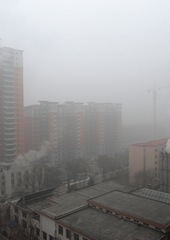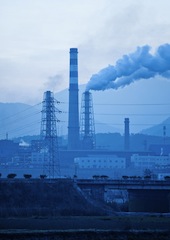Just The Facts: Noxious Beijing
What may be forcing the Chinese government’s hand on cutting emissions?
January 4, 2014

1. China continues to struggle with side effects of heavy emissions. This underlines the strategic importance of clean energy for the world’s most populous nation.
2. In the first three months of 2013, the levels of two major air pollutants increased by almost 30% in Beijing over the same period in 2012.
3. The two pollutants – nitrous dioxide and particulate matter called PM-10 – increased even more steeply, by 47% year over year in January 2013.
4. What made matters worse that month was that Beijing, due to topography and weather conditions, had recently seen its highest levels of relative humidity in a decade, while surface wind speeds were the lowest in 10 years.
5. Under such conditions, Beijing’s pollutants remained more trapped than usual.
From Two Major Air Pollutants Increase in China by Edward Wong (New York Times)
Takeaways
In early 2013, the levels of 2 major air pollutants increased by almost 30% in Beijing over the same period in 2012.
Nitrous dioxide and particulate PM-10 increased in Beijing by 47% year over year in January 2013 alone.
Beijing surface wind speeds hit their slowest in 10 years in January 2013, trapping smog in the city.
Author
The Globalist
Read previous

Is China’s Progress Inexorable?
January 4, 2014